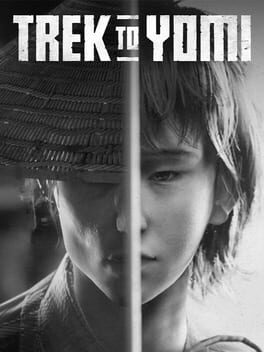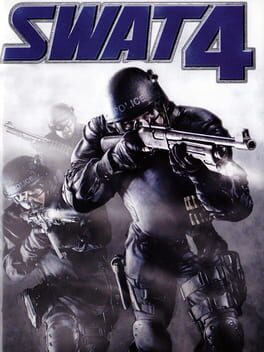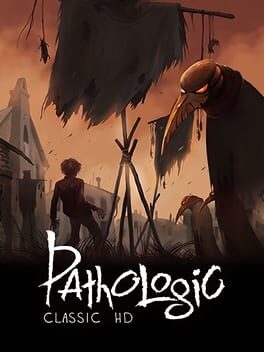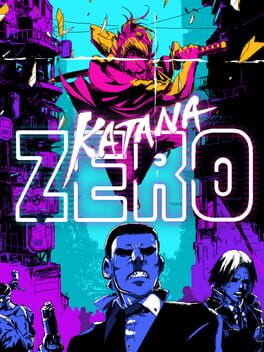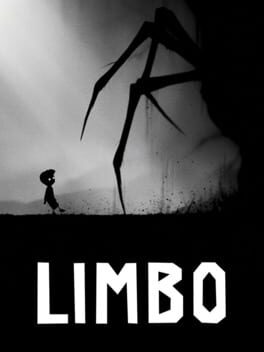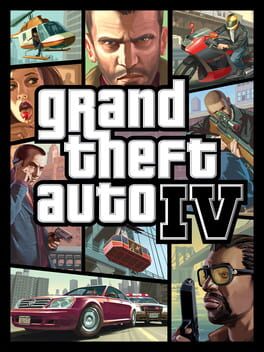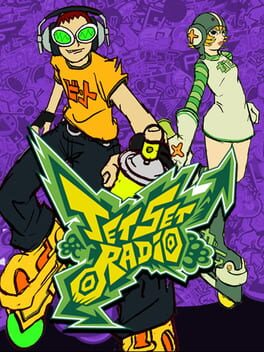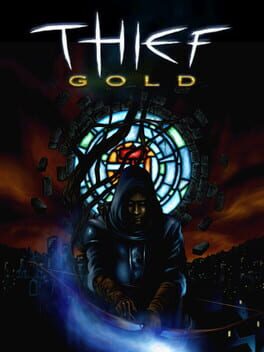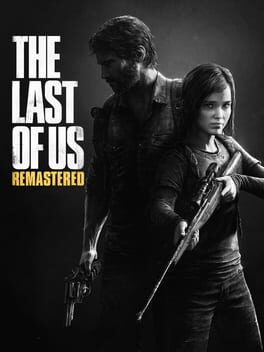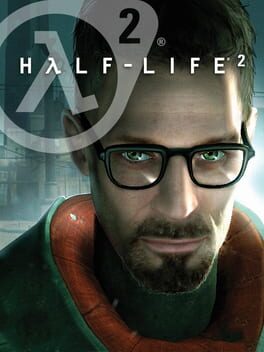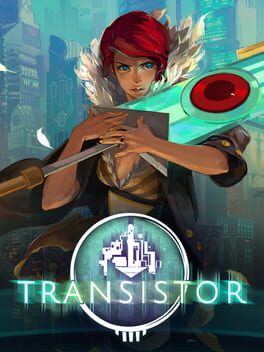Miniapplefan
Surrealist walking simulator that never ceases to surprise you with novel gameplay quirks.
The core gameplay is walking though this game really does everything it can to make that interesting short of adding any other actions (unless you count inspecting something as an action). From the dynamic text that writes itself across scenic points of interest to large amounts of internal dialogue from the main character, walking never seems like a huge chore because you'll frequently be taking breaks to soak in plot exposition. And since you aren't always walking in the shoes of the main character, the walking the game reserves for other characters is heavily differentiated and tailored to express the themes and experiences of that specific character. I can't really say much more without spoiling the magic.
On the topic of the plot, I found it to be a sweet, self-contained, narrative that has the right amount of breadth and mystery for it to be relatable to a lot of different people. While I personally didn't relate to the main character, one of the other characters in the game really hit close to home which triggered some self-introspection that I was totally not expecting (though the developers stated that one of their goals was to create a very introspective experience for all players).
Where the game really stands out is in its environment design and how it leverages this for incredible environmental story telling. While a lot of games place miscellaneous props to make it seem like a space is lived in, the props in every space in this game are curated so meticulously that it's hard to believe that the characters who lived in them AREN'T real. This level of detail really ties in well with the "slice of life" quality of the storytelling as each space is a snapshot of that character's life free for you to look around in however you'd like to.
I probably should have talked about this back in the gameplay section but each the objects you interact in this game have a very tactile feel through intuitive analog control schemes that really conveys the feeling that you're combing through every scrap in someone's belongings you can get your hands on to unravel their story. For example, to turn the pages in a book, you physically need to move the joystick from right to left as if flipping a page. When turning the key on a lock, you need to move your joystick in a clockwise turning motion. The design of these very personal, analog objects is of the same stellar quality the environments are, and makes these moments of interaction feel very Wes Anderson-esque.
Overall, I recommend this game for anyone who enjoys short but memorable gaming experiences. It certainly breaks the mold that games are one repetitive task repeated over and over again with small amounts of plot interspersed to make those task seem like parts in a larger narrative. Each and every task in this game is special and begs to be toyed with in such a way that slows down your interaction with the game as to be incredibly impactful and introspective.
The core gameplay is walking though this game really does everything it can to make that interesting short of adding any other actions (unless you count inspecting something as an action). From the dynamic text that writes itself across scenic points of interest to large amounts of internal dialogue from the main character, walking never seems like a huge chore because you'll frequently be taking breaks to soak in plot exposition. And since you aren't always walking in the shoes of the main character, the walking the game reserves for other characters is heavily differentiated and tailored to express the themes and experiences of that specific character. I can't really say much more without spoiling the magic.
On the topic of the plot, I found it to be a sweet, self-contained, narrative that has the right amount of breadth and mystery for it to be relatable to a lot of different people. While I personally didn't relate to the main character, one of the other characters in the game really hit close to home which triggered some self-introspection that I was totally not expecting (though the developers stated that one of their goals was to create a very introspective experience for all players).
Where the game really stands out is in its environment design and how it leverages this for incredible environmental story telling. While a lot of games place miscellaneous props to make it seem like a space is lived in, the props in every space in this game are curated so meticulously that it's hard to believe that the characters who lived in them AREN'T real. This level of detail really ties in well with the "slice of life" quality of the storytelling as each space is a snapshot of that character's life free for you to look around in however you'd like to.
I probably should have talked about this back in the gameplay section but each the objects you interact in this game have a very tactile feel through intuitive analog control schemes that really conveys the feeling that you're combing through every scrap in someone's belongings you can get your hands on to unravel their story. For example, to turn the pages in a book, you physically need to move the joystick from right to left as if flipping a page. When turning the key on a lock, you need to move your joystick in a clockwise turning motion. The design of these very personal, analog objects is of the same stellar quality the environments are, and makes these moments of interaction feel very Wes Anderson-esque.
Overall, I recommend this game for anyone who enjoys short but memorable gaming experiences. It certainly breaks the mold that games are one repetitive task repeated over and over again with small amounts of plot interspersed to make those task seem like parts in a larger narrative. Each and every task in this game is special and begs to be toyed with in such a way that slows down your interaction with the game as to be incredibly impactful and introspective.
2022
Highly stylized 2D samurai fighting game that makes you feel like the main character in an Akira Kurosawa film.
Gameplay wise, Trek to Yomi isn't anything particularly interesting though I personally found it fun. It's a standard beat'em up style game where enemies surround your character from 2 sides and you use combinations of your light and heavy attack to fend them off. You are provided with a large number of combos for different situations however I found myself only using like 2 of them that carried me through the game. Perhaps on a higher difficulty the other combos are more useful. You also have some ranged weapons though I barely used them except for during boss battles when I was really close to finishing them off and didn't want to get close.
Aesthetics wise, the game is beautiful. The choice to use set camera positions in the environment that focus on a whole scene rather than just the player character really sells the cinematic quality of the game. I feel the need to stress the cinematography of the camera placements even more so I'll just say that almost every scene you enter into could be screenshotted and it would look like it came straight from a Kurosawa film. Animations are pretty crisp and allow you to orchestrate some awesome fight scenes if you know what you're doing with the combos.
Storywise, the game is what you'd expect from a samurai game. I didn't find it particularly compelling and there were some choices to be made that I think (?) just affected some cutscenes but nothing major. If the choices led to different levels or endings I'd be very surprised.
Overall, good game if you like strong, stylized aesthetics with a cinematic quality to them. I finished the game in like two 3ish hour sittings though I wish I took more time to savor the visuals.
Gameplay wise, Trek to Yomi isn't anything particularly interesting though I personally found it fun. It's a standard beat'em up style game where enemies surround your character from 2 sides and you use combinations of your light and heavy attack to fend them off. You are provided with a large number of combos for different situations however I found myself only using like 2 of them that carried me through the game. Perhaps on a higher difficulty the other combos are more useful. You also have some ranged weapons though I barely used them except for during boss battles when I was really close to finishing them off and didn't want to get close.
Aesthetics wise, the game is beautiful. The choice to use set camera positions in the environment that focus on a whole scene rather than just the player character really sells the cinematic quality of the game. I feel the need to stress the cinematography of the camera placements even more so I'll just say that almost every scene you enter into could be screenshotted and it would look like it came straight from a Kurosawa film. Animations are pretty crisp and allow you to orchestrate some awesome fight scenes if you know what you're doing with the combos.
Storywise, the game is what you'd expect from a samurai game. I didn't find it particularly compelling and there were some choices to be made that I think (?) just affected some cutscenes but nothing major. If the choices led to different levels or endings I'd be very surprised.
Overall, good game if you like strong, stylized aesthetics with a cinematic quality to them. I finished the game in like two 3ish hour sittings though I wish I took more time to savor the visuals.
2005
As many have already said, this is probably the best tactical shooter of all time. SWAT 4 is truly one of the only fps games where you really have to think before you act. While twitch reflexes will get you some way through the game, exercising tactical thinking by appropriately applying your available tools to the situation is absolutely required to win. Every room demands your full attention to detail and analysis as it only takes one bad guy to wipe your entire squad. The random placement of enemies each time a level is loaded prevents you from brute forcing your way through levels through memorization and you are required to think through the situations in each level all over again every time you play. The amount of command you have over your AI squadmates is unlike anything I've seen and really allows you to think about how to approach a situation from different angles and the different maneuvers you can execute.
The shooting and movement are clunky, though I consider this a conscious design choice as the game is a tactical strategy game first and an fps second. Most of the time, if you've applied the best tactics to your situation, your AI squadmates will neutralize all the threats without you having to fire a single shot.
The overall aesthetics of the game are slightly dated but the environments have a high level of variety so you won't find yourself staring at one for too long. The attention to detail to the props found in each level is noticeable and goes a long way to making the environments seem realistic and lived in.
The sound design is extremely well done and is probably responsible for 70% of the immersion factor. The dynamic music that intensifies when breaching rooms is also a great.
Overall, SWAT 4 is a flawless game. Highly recommend it to players who are fans of tactical fps games or strategy games in general.
The shooting and movement are clunky, though I consider this a conscious design choice as the game is a tactical strategy game first and an fps second. Most of the time, if you've applied the best tactics to your situation, your AI squadmates will neutralize all the threats without you having to fire a single shot.
The overall aesthetics of the game are slightly dated but the environments have a high level of variety so you won't find yourself staring at one for too long. The attention to detail to the props found in each level is noticeable and goes a long way to making the environments seem realistic and lived in.
The sound design is extremely well done and is probably responsible for 70% of the immersion factor. The dynamic music that intensifies when breaching rooms is also a great.
Overall, SWAT 4 is a flawless game. Highly recommend it to players who are fans of tactical fps games or strategy games in general.
I stumbled upon this game while looking for games similar to Disco Elysium and while I see some similarities, it really stands on its own as a a game that explores time and player choice.
The main gameplay consists of navigating the streets of a town to talk to various npcs in order to complete quests. While the streets of the town start off completely safe, they slowly devolve into chaos as the game goes on, making travel dangerous and exciting.
As a survival game, you are encouraged to conserve resources and avoid fighting enemies if possible, so optimal play is essentially avoiding enemies while walking from npc to npc. The closest thing I can describe it as is like those mmo questlines that have you darting all across the map, except there isn't any combat interspersed, it's literally just the being a courier part of it.
That being said, the character you play as (or at least the one you are recommended to start with from the three you can pick from) is a doctor and isn't some action hero who can fight a hundred bad guys so approaching the gameplay with this mindset makes it make more sense. It is entirely possible to do some vigilantism and go out hunting for bad guys, and this turns out to be very profitable, though it becomes clear that you can't save everyone. And this is where I think the game shines. It creates an atmosphere of despair and hopelessness I haven't seen captured in any game. Particularly, the npc interactions on the street are entirely organic (not scripted), allowing for many depressingly realistic scenes to play out. For example, towards the late game, certain npcs are programmed to shoot other (helpless) npcs on sight. When traversing the streets, the sporadic gunshots you'll hear aren't just set dressing: a real npc is being shot at and most likely killed each time you hear one. Seeing npcs running in the distance isn't scripted: most likely, a mugger is running after a defenseless npc to kill them, and sometimes you'll see a cop running after them as well.
The main narrative of the game is captivating though rather cryptic and has some boring parts where it seems like a bit of a slog. The time mechanic as it relates to the quests is hyped up but honestly I never found running out of time to complete a quest to be that big of a deal. It just adds a bit of pressure to the walking-sim part of the game which is good. How the player's choices factored into the endings also seemed a bit cheap. Rather than an ending that accommodates any combination of individual choices, the player simply has to meet the rigid requirements of an ending for it to trigger, else they get the failed "bad" ending. I guess this is the same gripe I had with Disco Elysium too. I do like however how the endings are all nuanced and there isn't necessarily a correct one. The writing throughout the game, despite being translated, is pretty good and highly poetic/metaphorical throughout, emphasizing the artistic nature of the game.
Overall, Pathologic is surreal work that utilizes a combination of interesting mechanics to create a depressingly immersive atmosphere of working to find a cure for an epidemic in a slowly dying town. Playing this game after the covid pandemic was surreal in itself for sure. While the game is a slog at times, I recommend you play it if you appreciate the kind of atmosphere, immersion, and world building that only video games can achieve.
The main gameplay consists of navigating the streets of a town to talk to various npcs in order to complete quests. While the streets of the town start off completely safe, they slowly devolve into chaos as the game goes on, making travel dangerous and exciting.
As a survival game, you are encouraged to conserve resources and avoid fighting enemies if possible, so optimal play is essentially avoiding enemies while walking from npc to npc. The closest thing I can describe it as is like those mmo questlines that have you darting all across the map, except there isn't any combat interspersed, it's literally just the being a courier part of it.
That being said, the character you play as (or at least the one you are recommended to start with from the three you can pick from) is a doctor and isn't some action hero who can fight a hundred bad guys so approaching the gameplay with this mindset makes it make more sense. It is entirely possible to do some vigilantism and go out hunting for bad guys, and this turns out to be very profitable, though it becomes clear that you can't save everyone. And this is where I think the game shines. It creates an atmosphere of despair and hopelessness I haven't seen captured in any game. Particularly, the npc interactions on the street are entirely organic (not scripted), allowing for many depressingly realistic scenes to play out. For example, towards the late game, certain npcs are programmed to shoot other (helpless) npcs on sight. When traversing the streets, the sporadic gunshots you'll hear aren't just set dressing: a real npc is being shot at and most likely killed each time you hear one. Seeing npcs running in the distance isn't scripted: most likely, a mugger is running after a defenseless npc to kill them, and sometimes you'll see a cop running after them as well.
The main narrative of the game is captivating though rather cryptic and has some boring parts where it seems like a bit of a slog. The time mechanic as it relates to the quests is hyped up but honestly I never found running out of time to complete a quest to be that big of a deal. It just adds a bit of pressure to the walking-sim part of the game which is good. How the player's choices factored into the endings also seemed a bit cheap. Rather than an ending that accommodates any combination of individual choices, the player simply has to meet the rigid requirements of an ending for it to trigger, else they get the failed "bad" ending. I guess this is the same gripe I had with Disco Elysium too. I do like however how the endings are all nuanced and there isn't necessarily a correct one. The writing throughout the game, despite being translated, is pretty good and highly poetic/metaphorical throughout, emphasizing the artistic nature of the game.
Overall, Pathologic is surreal work that utilizes a combination of interesting mechanics to create a depressingly immersive atmosphere of working to find a cure for an epidemic in a slowly dying town. Playing this game after the covid pandemic was surreal in itself for sure. While the game is a slog at times, I recommend you play it if you appreciate the kind of atmosphere, immersion, and world building that only video games can achieve.
What an absolute masterpiece of a game. Pushes forward the idea that games give us experiences that cannot be replicated in any other kind of media. It makes you feel like a detective, and sniffing out and piecing together really minute details is only something that you can do when you have the freedom to examine a crime scene however you'd like, which is essentially what this entire game is about.
I will say that while there is apparently enough information to figure out everything without "guess and checking", these details are so minute that I don't know if most people will notice them. And here's where I think a complex game design decision had to be made. The ability to guess and check could have been discouraged or outright removed, but then this puts a lot of trust in the player to be able to figure out the really small details and not give up before then. When I finally got really close to solving everything and was at a wits end for the last bits, I decided to guess and check and I feel "lesser" for that, but at the same time do not think I would have figured out how to do it "legit", which would have barred me from seeing the true ending, so I guess it's kind of a tradeoff that while I'm grateful for, I wish I didn't have to use, and only used when absolutely necessary.
The style of the game is unique and I've heard that the 2 bit graphics were even chosen to reduce strain on the eyes when staring for a long time which is a really cool extra bit of game designy decision making. I also really like the music. After a certain point, you'll be able to match which track is playing to the chapter you are viewing, which might help you piece things together.
A real special game that everyone should set aside maybe 2-3 days to complete in one go. That's how long it took me to finish the game and while I felt kinda empty inside after finishing it in such a short amount of time because of how awesome each moment felt, I wouldn't have wanted to space it out any more because you definitely want the details fresh in your mind when trying to piece things together.
I will say that while there is apparently enough information to figure out everything without "guess and checking", these details are so minute that I don't know if most people will notice them. And here's where I think a complex game design decision had to be made. The ability to guess and check could have been discouraged or outright removed, but then this puts a lot of trust in the player to be able to figure out the really small details and not give up before then. When I finally got really close to solving everything and was at a wits end for the last bits, I decided to guess and check and I feel "lesser" for that, but at the same time do not think I would have figured out how to do it "legit", which would have barred me from seeing the true ending, so I guess it's kind of a tradeoff that while I'm grateful for, I wish I didn't have to use, and only used when absolutely necessary.
The style of the game is unique and I've heard that the 2 bit graphics were even chosen to reduce strain on the eyes when staring for a long time which is a really cool extra bit of game designy decision making. I also really like the music. After a certain point, you'll be able to match which track is playing to the chapter you are viewing, which might help you piece things together.
A real special game that everyone should set aside maybe 2-3 days to complete in one go. That's how long it took me to finish the game and while I felt kinda empty inside after finishing it in such a short amount of time because of how awesome each moment felt, I wouldn't have wanted to space it out any more because you definitely want the details fresh in your mind when trying to piece things together.
2019
A very stylized action game that combines twitch gameplay with some small puzzle elements.
The pixel art is extremely well done and the animations are super crisp.
The gameplay is 2d hack and slashy but has the Hotline Miami you die in one hit mechanic so you need to react quickly and at times just kinda act on muscle memory/instinct to survive. There's a slow down time mechanic but I found myself barely using it except for parts that seem designed to be impossible otherwise (boooo). I'm not trying to be elitist but I think that you'll get more of a rush from not using the slow down mechanic and the whole experience will just be "cooler" if you don't.
The music is good but seems a bit dialed back? As in they don't stand that well on their own but fit within the game well. Maybe i'm just weird for listening to the Hotline Miami soundtrack outside of the game, but I don't know if I can see myself doing the same for this game.
The narrative is overall pretty interesting but ends on a pretty forgettable note, so forgettable in fact that I don't even remember it and I played the game like 3 days ago.
If you like Hotline Miami, you'll definitely like this game but I wouldn't say it stands shoulder to shoulder with it. On it's own, it's still a great game though.
The pixel art is extremely well done and the animations are super crisp.
The gameplay is 2d hack and slashy but has the Hotline Miami you die in one hit mechanic so you need to react quickly and at times just kinda act on muscle memory/instinct to survive. There's a slow down time mechanic but I found myself barely using it except for parts that seem designed to be impossible otherwise (boooo). I'm not trying to be elitist but I think that you'll get more of a rush from not using the slow down mechanic and the whole experience will just be "cooler" if you don't.
The music is good but seems a bit dialed back? As in they don't stand that well on their own but fit within the game well. Maybe i'm just weird for listening to the Hotline Miami soundtrack outside of the game, but I don't know if I can see myself doing the same for this game.
The narrative is overall pretty interesting but ends on a pretty forgettable note, so forgettable in fact that I don't even remember it and I played the game like 3 days ago.
If you like Hotline Miami, you'll definitely like this game but I wouldn't say it stands shoulder to shoulder with it. On it's own, it's still a great game though.
2010
Surprisingly I was able to go into this game completely blind after all these years and I guess it's okay?
I knew it would be a slightly creepy experience from the art and overall color scheme which made me think it would be a survival horror type of game but after playing it I'd say it's more of a puzzle game with the main mechanic being trial and error.
Idk but I just didn't really like the die -> try something different -> die horribly again -> try again loop. I also felt like the difficulty of the puzzles was not well paced towards the end. You're mostly just moving a couple boxes around for most of the game then at the end it introduces a bunch of new mechanics and gets wildly complex.
I will say that the game has a really nice aesthetic and art direction, especially the decision to basically just use shades of gray.
I knew it would be a slightly creepy experience from the art and overall color scheme which made me think it would be a survival horror type of game but after playing it I'd say it's more of a puzzle game with the main mechanic being trial and error.
Idk but I just didn't really like the die -> try something different -> die horribly again -> try again loop. I also felt like the difficulty of the puzzles was not well paced towards the end. You're mostly just moving a couple boxes around for most of the game then at the end it introduces a bunch of new mechanics and gets wildly complex.
I will say that the game has a really nice aesthetic and art direction, especially the decision to basically just use shades of gray.
2008
First off let me say that I am from New York City so I might be a bit biased but I think this game is amazing. It really does capture the "no one cares about you" attitude that the city has, which meshes really well with the Rockstar world design that is centered around making you feel like an observer in a living breathing place. I should also note that I played the majority of the game using the first person mod for PC. I think this really increases the immersion factor so if you're someone like me who doesn't like third person games still give this a try with that mod installed.
The writing is amazing, as to be expected. You really do feel like an immigrant who works their way up to the top, from doing small time gigs for a local mafia boss in the early game to carrying out full scale bank robberies later on.
I've heard people describe the game as "gritty", though I think a better descriptor might be "unapologetic". The writing prioritizes the strength of its absurd, slapstick, humor above being sanitized/politically correct. Some of this humor draws on stereotypes that should certainly be shunned today but I think going into the game with the expectations that these kinds of things are exaggerated for an artistic vision and are not a reflection of the real world makes them acceptable. The narrative simply wouldn't live up it's hyperbolic depiction of life in the city without this kind content.
I criticized Rockstar's game design in my review of Red Dead Redemption 2 for not giving the player the creative freedom to approach mission objectives. I wouldn't say that GTA 4 goes out of it's way to encourage player freedom but it certainly doesn't obstruct it either; there was never a time where I failed a mission because of something I thought was unfair (like walking out of bounds or something). For example, in one mission you need to assault some enemies hiding out in a hotel. The game gives you the waypoint of the hotel but doesn't explicitly say to go through the front lobby. I decided to look around a bit and found a window washer's elevator that I could use to travel to the top floor. I was then able to walk over to the skylight over the room with the enemies and begin my assault from the high ground. It's stuff like this that I think needs to be emulated in more Rockstar games missions. They have this fantastic world with tons of interactive elements. Why not let the player use them?
Overall, a real classic that I suggest everyone play at some point. I started it back in January, played a couple missions, got busy with school, picked it back up this fall, got hooked, and binged the entire 40ish hour main story in like 3 weeks.
The writing is amazing, as to be expected. You really do feel like an immigrant who works their way up to the top, from doing small time gigs for a local mafia boss in the early game to carrying out full scale bank robberies later on.
I've heard people describe the game as "gritty", though I think a better descriptor might be "unapologetic". The writing prioritizes the strength of its absurd, slapstick, humor above being sanitized/politically correct. Some of this humor draws on stereotypes that should certainly be shunned today but I think going into the game with the expectations that these kinds of things are exaggerated for an artistic vision and are not a reflection of the real world makes them acceptable. The narrative simply wouldn't live up it's hyperbolic depiction of life in the city without this kind content.
I criticized Rockstar's game design in my review of Red Dead Redemption 2 for not giving the player the creative freedom to approach mission objectives. I wouldn't say that GTA 4 goes out of it's way to encourage player freedom but it certainly doesn't obstruct it either; there was never a time where I failed a mission because of something I thought was unfair (like walking out of bounds or something). For example, in one mission you need to assault some enemies hiding out in a hotel. The game gives you the waypoint of the hotel but doesn't explicitly say to go through the front lobby. I decided to look around a bit and found a window washer's elevator that I could use to travel to the top floor. I was then able to walk over to the skylight over the room with the enemies and begin my assault from the high ground. It's stuff like this that I think needs to be emulated in more Rockstar games missions. They have this fantastic world with tons of interactive elements. Why not let the player use them?
Overall, a real classic that I suggest everyone play at some point. I started it back in January, played a couple missions, got busy with school, picked it back up this fall, got hooked, and binged the entire 40ish hour main story in like 3 weeks.
2012
I don't normally play sports games, if this game can even be considered one, and certainly do not play any skating games like Tony Hawk, though I thoroughly enjoyed Jet Set Radio.
I decided to play JSR because of its style and I have to say I haven't really seen anything quite like it before, though its influence on other games is clear. It's dripping with personality in a way that shows great attention to detail. For example, the menu screen to select levels, change options, etc. isn't some bland UI screen with boxes, instead it's a camera that pans to different objects in the room each with their own function: a boombox changes the background music, a Map pasted onto a wall opens the level select screen.
The art direction is also really strong, characters have exaggerated proportions that are reminiscent of anime characters and the wonderful cel-shading further sells this style.
Of course the music is absolutely legendary, groovy enough to stand out but not too distracting while you're trying to focus on not loosing your combo. The sound design adds a lot of impact to each action, such as the little chimes you play each time you successfully do a part of a graffiti.
My only criticism would be that the controls are a bit janky. I played the game on a PS4 controller though I understand that it was originally supposed to be played on a Sega Dreamcast controller which had some kind of special analogy joystick. My experience was that I felt the movement was a bit sluggish at times, especially air control where a tiny nudge does nothing but a big push completely derails you.
Overall, a really great game for people who like games that feel like everything just comes together in one juicy package. It has a bit of a learning curve but existing in the game world feels so cool that you'll want to get good.
I decided to play JSR because of its style and I have to say I haven't really seen anything quite like it before, though its influence on other games is clear. It's dripping with personality in a way that shows great attention to detail. For example, the menu screen to select levels, change options, etc. isn't some bland UI screen with boxes, instead it's a camera that pans to different objects in the room each with their own function: a boombox changes the background music, a Map pasted onto a wall opens the level select screen.
The art direction is also really strong, characters have exaggerated proportions that are reminiscent of anime characters and the wonderful cel-shading further sells this style.
Of course the music is absolutely legendary, groovy enough to stand out but not too distracting while you're trying to focus on not loosing your combo. The sound design adds a lot of impact to each action, such as the little chimes you play each time you successfully do a part of a graffiti.
My only criticism would be that the controls are a bit janky. I played the game on a PS4 controller though I understand that it was originally supposed to be played on a Sega Dreamcast controller which had some kind of special analogy joystick. My experience was that I felt the movement was a bit sluggish at times, especially air control where a tiny nudge does nothing but a big push completely derails you.
Overall, a really great game for people who like games that feel like everything just comes together in one juicy package. It has a bit of a learning curve but existing in the game world feels so cool that you'll want to get good.
1999
A classic "building block" entry in the immersive sim genre whose influence can be seen almost everywhere nowadays in the form of safe-zone based stealth mechanics.
If I had to describe the main gameplay of Thief in modern terms, I'd call it a walking simulator. Of course there's the stealth mechanic, though about 90% of the time, your task will simply be to traverse the level from point A to point B, stoping to wait a bit in the dark areas for the guards to move out of your way. And this is where my main issue with this game lies: the level design is hit or miss. Some levels will really accentuate the claustrophobic sneaky feeling you get when you step into the shadows right as a guard turns the corner, and other levels will basically have you walking through pretty bland environments for ages just to get to the next objective.
Then there are levels which are combat centric which are just awful. Maybe for 1999 the combat was exciting, but it doesn't hold up at all today and really feels like a slog. I'm certain that all levels can be completed without killing any enemies, but in these "combat" levels, there are simply so many enemies that killing them is faster than sneaking around them and the level layouts are at times literally just brightly lit hallways with enemies in them so you have no option but to fight.
In sum, Thief was revolutionary with its stealth mechanics that we take for granted today, and even for being so old, still executes on them well, however inconsistent and unfocused level design makes the ride a bit bumpy in the modern day.
If I had to describe the main gameplay of Thief in modern terms, I'd call it a walking simulator. Of course there's the stealth mechanic, though about 90% of the time, your task will simply be to traverse the level from point A to point B, stoping to wait a bit in the dark areas for the guards to move out of your way. And this is where my main issue with this game lies: the level design is hit or miss. Some levels will really accentuate the claustrophobic sneaky feeling you get when you step into the shadows right as a guard turns the corner, and other levels will basically have you walking through pretty bland environments for ages just to get to the next objective.
Then there are levels which are combat centric which are just awful. Maybe for 1999 the combat was exciting, but it doesn't hold up at all today and really feels like a slog. I'm certain that all levels can be completed without killing any enemies, but in these "combat" levels, there are simply so many enemies that killing them is faster than sneaking around them and the level layouts are at times literally just brightly lit hallways with enemies in them so you have no option but to fight.
In sum, Thief was revolutionary with its stealth mechanics that we take for granted today, and even for being so old, still executes on them well, however inconsistent and unfocused level design makes the ride a bit bumpy in the modern day.
Gritty and dark game that really makes you hope you never have to actually survive in a post apocalyptic world. What most people comment on is the story, which is fantastic. it follows a traditional arc very well and still gets you even after you've already seen it (which I had because I watched a lets play of it ages ago).
The gameplay has a very "scrappy" feeling to it. Unlike the Uncharted series where you're an unstoppable action hero, in TLOU, you are simply a survivor pitted against insurmountable odds that only resourcefulness and quick thinking will get you through, sometimes just barely. It's these brought back from desperations moment where the game really shines and makes you feel like you're barely getting by. The main character says at one point, in response to another character commenting on how they've survived so far, "It's called luck, and it's gonna run out at one point", that really sums up how the game feels.
I played the game trying to fire my guns only when absolutely necessary, as that's probably what I'd do in a real life scenario, instead opting for the silent takedowns, which added just that more tension to the experience and I encourage you to do the same. The melee takedowns are also brutal and further add to that feeling that killing isn't glorified and that you're only doing it to survive.
Overall great game that makes you feel the same through both the gameplay and the story.
The gameplay has a very "scrappy" feeling to it. Unlike the Uncharted series where you're an unstoppable action hero, in TLOU, you are simply a survivor pitted against insurmountable odds that only resourcefulness and quick thinking will get you through, sometimes just barely. It's these brought back from desperations moment where the game really shines and makes you feel like you're barely getting by. The main character says at one point, in response to another character commenting on how they've survived so far, "It's called luck, and it's gonna run out at one point", that really sums up how the game feels.
I played the game trying to fire my guns only when absolutely necessary, as that's probably what I'd do in a real life scenario, instead opting for the silent takedowns, which added just that more tension to the experience and I encourage you to do the same. The melee takedowns are also brutal and further add to that feeling that killing isn't glorified and that you're only doing it to survive.
Overall great game that makes you feel the same through both the gameplay and the story.
2019
I heard someone say that this game is like if someone who only directs movies tried to make a game and I have to agree. Visually, the game is distinct, and has interesting, if a bit convoluted, lore, though from a game design perspective it is rather shallow. The game is a third person shooter which mainly consists of clearing rooms, and while it gives you special powers to use in combat, I found that only using the force throw power and shooting people with the regular gun was the most efficient way of dealing with most combat encounter for the whole game. The powers are cool and have little tutorial sections to show off how they can be used, but in practicality do not make much of an impact in the moment to moment combat. Unrelated but the world map is also really confusing to navigate.
Character progression is through mods you can assign to your character and weapons, however they modify traits by an arbitrary percentage when a simple tiering system would have sufficed (its ironic because they're already separated by tiers, yet within a tier you can have two mods that modify the same trait except one is ever so slightly worse than the other by a percentage point or so. Like seriously that is unnecessary and confusing).
Overall, a real slog to get through. I'm sure certain people will find it fun but for me I couldn't wait to be done with it and move on.
Character progression is through mods you can assign to your character and weapons, however they modify traits by an arbitrary percentage when a simple tiering system would have sufficed (its ironic because they're already separated by tiers, yet within a tier you can have two mods that modify the same trait except one is ever so slightly worse than the other by a percentage point or so. Like seriously that is unnecessary and confusing).
Overall, a real slog to get through. I'm sure certain people will find it fun but for me I couldn't wait to be done with it and move on.
Let me start by saying at the time of writing this, Red Dead Redemption 2 is most likely considered the pinnacle of video game engineering and for that it is incredibly impressive. The amount of innovation it took to create such a dense and realistic world is probably staggering and would take a single person multiple lifetimes to understand. This doesn't even take into account the design side of things: voice acting, world design, cinematography, etc. The passion and care that went into creating this game is evident.
Gameplay wise, I think the game leaves a lot to be desired. This is the first Rockstar Game I've ever played and finishing it doesn't really excite me to play their other titles. As many others have already stated the mission design is incredibly outdated and forces the player down an extremely linear path, to the point of absurdity at times. For example, in one mission you need to sneak into a room on the second floor of a building. The interior of the building is entirely patrolled by guards and you start outside the building. What I did the first time was walk over to a stack of crates that were on the side of the building and climb up them such that I could reach a window literally looking into the room I needed to get into. However upon walking up to the window I failed the mission for leaving the mission area. Like maybe I play too many immersive sims but that was just infuriating. Aside from that, a lot of the missions can be reduced to elaborate shooting galleries, where the shooting mechanics are kinda lackluster for how much you are forced to use them (I played the game entirely in first person mode for immersion reasons but I don't think third person would have made it much better). However the side activities such as random chores, watching movies, fishing, card games, etc. are really well done and really add to existing in the world.
The story is well written and has very good cinematography to the point that sometimes you just want to sit back and watch the game happen.
Overall, I can appreciate the game from a development standpoint, but to say that I truly enjoyed playing the game is a different story.
Gameplay wise, I think the game leaves a lot to be desired. This is the first Rockstar Game I've ever played and finishing it doesn't really excite me to play their other titles. As many others have already stated the mission design is incredibly outdated and forces the player down an extremely linear path, to the point of absurdity at times. For example, in one mission you need to sneak into a room on the second floor of a building. The interior of the building is entirely patrolled by guards and you start outside the building. What I did the first time was walk over to a stack of crates that were on the side of the building and climb up them such that I could reach a window literally looking into the room I needed to get into. However upon walking up to the window I failed the mission for leaving the mission area. Like maybe I play too many immersive sims but that was just infuriating. Aside from that, a lot of the missions can be reduced to elaborate shooting galleries, where the shooting mechanics are kinda lackluster for how much you are forced to use them (I played the game entirely in first person mode for immersion reasons but I don't think third person would have made it much better). However the side activities such as random chores, watching movies, fishing, card games, etc. are really well done and really add to existing in the world.
The story is well written and has very good cinematography to the point that sometimes you just want to sit back and watch the game happen.
Overall, I can appreciate the game from a development standpoint, but to say that I truly enjoyed playing the game is a different story.
2004
Just a classic game that is omnipresent in the gaming discussion space. While it would appear that the core mechanic of Half Life 2 is that it is a first person shooter, I'd argue that it's much more than that. Like sure you shoot people pretty consistently, but what makes the game interesting and memorable (not like Call of Duty for example, which is a fine game in its own right but is literally only about shooting people) are the slew of other mechanics the game presents to you. For example, using the gravity gun, the antlion pheromones, the vehicle sections, etc. The game is always giving the player something new to learn and play with, almost at and overwhelming pace. The worldbuilding is also very well done and unique.
2014
ARPG with tactical traditional RPG mechanic mixed in, kind of like the Fallout VATs system. I kinda hated how you temporarily lost your skills upon death which forced you to try other builds. It's like, I have my stomping build all planned out, just let me destroy people. The story and soundtrack weren't terribly memorable though the aesthetic and visuals were very well done as in all Super Giant games. The ending kind of felt like a slog, and being forced to use other skills due to death is just annoying, especially since you only have to fight one type of enemy so once you have the correct build mapped out to kill them, it's really easy and losing this build makes the task magnitudes more tedious. If you liked Bastion you'll probably like this game however I don't think it's the best introduction to the Super Giant style of games.

